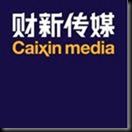CHINA'S REFORM CREDIBILITY PROBLEM
Verbal commitments to progress should be backed up with concrete actions, and changes to state-owned enterprises are a good place to start
Barry Naughton
Caixin, December 31, 2012
There is a great deal of consensus in China about changing the growth model and the need to restart and reinvigorate economic reforms, but there's much less consensus about which economic reforms should be implemented first and right away.
Reforms in the past have achieved a great deal. Things that haven't been done today are especially difficult. They are either technically difficult or they create opposition or they need ideological breakthroughs to help people understand the kind of society and economy that China is becoming.
China's commitment to reform has been consistent, in theory, over the past thirty years. But the actual progress in reform has sometimes been great and sometimes less impressive. This means that the verbal commitment to reform no longer has the kind of impact that it had in the past. In 1992, a commitment to a socialist market economy could have enormous impact. But today, to commit to a general principle means nothing because the commitment was made so long ago. What is required instead is specific policy.
(...) [article here]





































